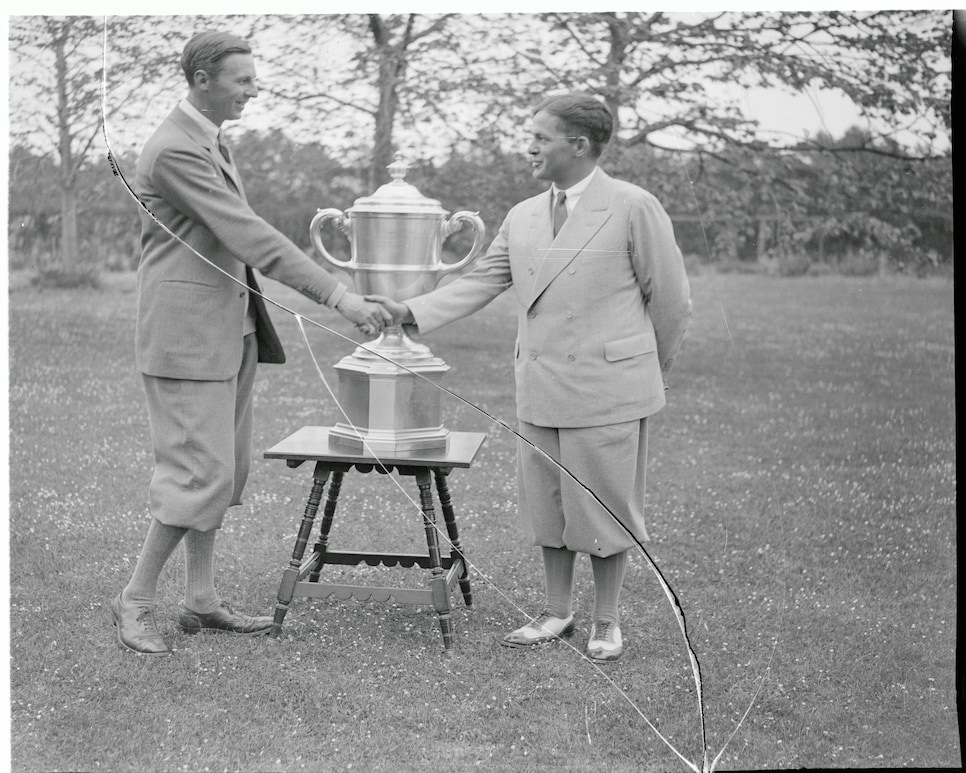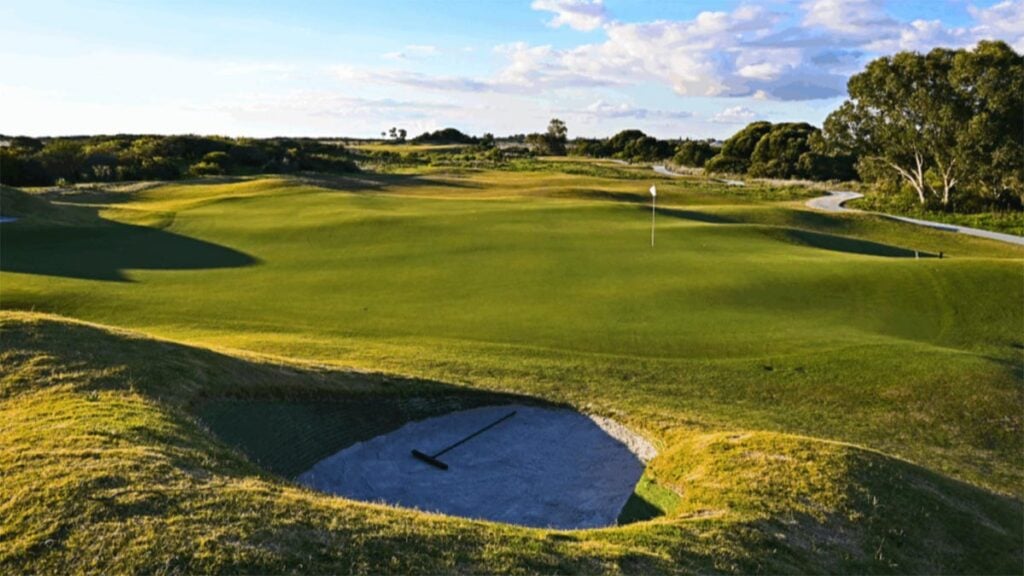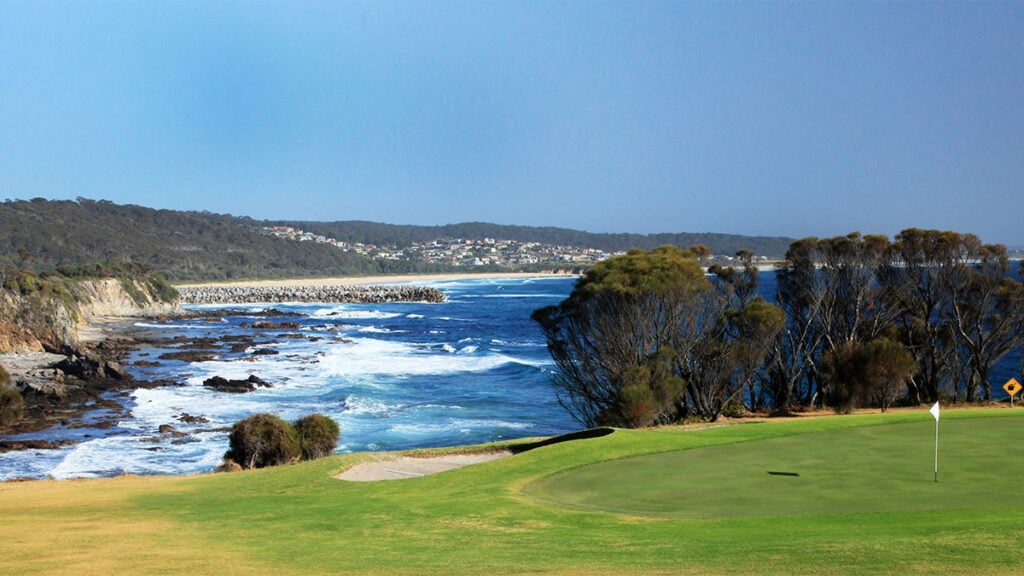Named for a 17th-century English clergyman poet, but perhaps better remembered as the founder of the Walker Cup, George Herbert Walker led a colorful life. The eventual grandfather of President George H.W. Bush and great-grandfather of President George W. Bush bucked familial expectations at nearly every turn and found success by doggedly pursuing his own passions, many of which centered around sports. From boxing, football, auto racing, horse racing, polo and golf, G.H., known as “Bert,” was tough, a risk-taker with an unrelenting desire to succeed.
Walker’s father, David Davis “D.D.” Walker, had been born into poverty, one of seven children in a farming family. Forced to seek a better life, the Walkers moved from Maryland to central Illinois to live with D.D.’s aunt and her husband, Judge David Davis, for whom young D.D. was named. Davis was a judge on the Eighth Circuit and, despite his 300-pound frame, managed to ride the vast judicial territory on horseback with two other judges, including a talented young attorney named Abraham Lincoln. The men became close friends, and Davis was pivotal in securing Lincoln’s 1860 presidential nomination. Later, Davis served on the U.S. Supreme Court.
Judge Davis felt compelled to look after young D.D. who was, however, a disappointment to him—somewhat of a recurring theme in my family. D.D. entered the dry goods business in St. Louis as a clerk during America’s Westward Expansion and found success. He and his wife, Martha, raised six children. They hoped their fifth child, George Herbert Walker, would pursue the priesthood. At 13, G.H. was shipped off to Stonyhurst in Scotland to study with the Jesuits.
The young man’s passions, however, lay elsewhere. Upon returning to St. Louis, much to his parents’ chagrin, he declared his priorities were not the priesthood but girls, golf and boxing. G.H. reluctantly joined his father’s business, handling shipping and finance with the railroads, then controlled by the Harrimans, and in his spare time became Missouri’s amateur-heavyweight boxing champion. The story goes that G.H. was counting inventory in his father’s warehouse when, during a fire drill, he walked out and never went back.
G.H. was recruited by the Harrimans to New York, where he ran W.A. Harriman & Co. and later merged it into Brown Brothers. Eventually, he founded his own investment bank, G.H. Walker & Co., which thrived until industry changes (May Day, 1975) and poor leadership by his sons led to its demise and absorption into what is now Bank of America Merrill Lynch—shirtsleeves to shirtsleeves in three generations.
Despite G.H.’s business success, sport was always his true passion. He was an avid but not gifted golfer. Since Scotland, golf had loomed large for G.H., and his friendships with Charles Macdonald, Bobby Jones and Chick Evans, among others, pushed his love for the game further. He was elected president of the USGA in 1920, a role later held by his son-in-law Prescott Bush, and traveled abroad to standardize the game’s rules internationally.
In what was perhaps G.H.’s greatest moment on the links, as portrayed in the film, “Bobby Jones: Stroke of Genius” (2004), Walker chastised a teenaged Bobby Jones in writing for throwing his club. “You will never play in a USGA event again unless you can control your temper,” G.H. wrote. Jones matured, of course, and would go on to win nine USGA championships, becoming the greatest player in amateur golf and the man who perhaps best personified sportsmanship and fair play. Jones would invite Walker to be a founding member of his masterpiece, Augusta National Golf Club.

Bobby Jones receives a Walker Cup congratulations from Roger Wethered, left, Captain of the English Team
Bettmann
In February 1921, when he retired as president of the USGA, inspired by his neighbor in St. Louis, Dwight Davis, G.H. announced he would donate a large silver trophy for an international golf competition. Though the cup was officially called the “United States Golf Association International Challenge Trophy,” the press dubbed it the “Walker Cup.” Whereas the Davis Cup tennis competition would expand beyond the U.S. and British Isles and include professionals starting in 1968, Walker’s golf format remains his original vision.
My great-grandfather died in 1953, long before I was born. I think about his fervor for the game and the ways in which he curated a life, not according to what was expected of him so much, but grounded in what he had to give and what he loved. I wonder what advice he might have for us all. My hunch is that he’d suggest five things:
• Play hard. Play fair. Compete in all things.
• Give back to the organizations that will have you and to the sports that enrich your life.
• Pick the right life partner. The Walkers (and Bushes) might be famed for their men, but it is the women—like Walker’s wife, Loulie, and daughter Dorothy, herself a tennis champion and mother of George H.W. Bush—who are the leaders of the family.
• Have many grandchildren and great-grandchildren. Your children might fall short but future generations hold prospective presidents.
• Most of all, play plenty of golf with friends old and new—by the end of the round, you will all be friends.
GEORGE H. WALKER is a great-grandson of George Herbert Walker. Like the Foremans of boxing and grilling fame, the Walkers lacked creativity in bestowing names and, as such, he is one of many Georges in his family.
This article was originally published on golfdigest.com




